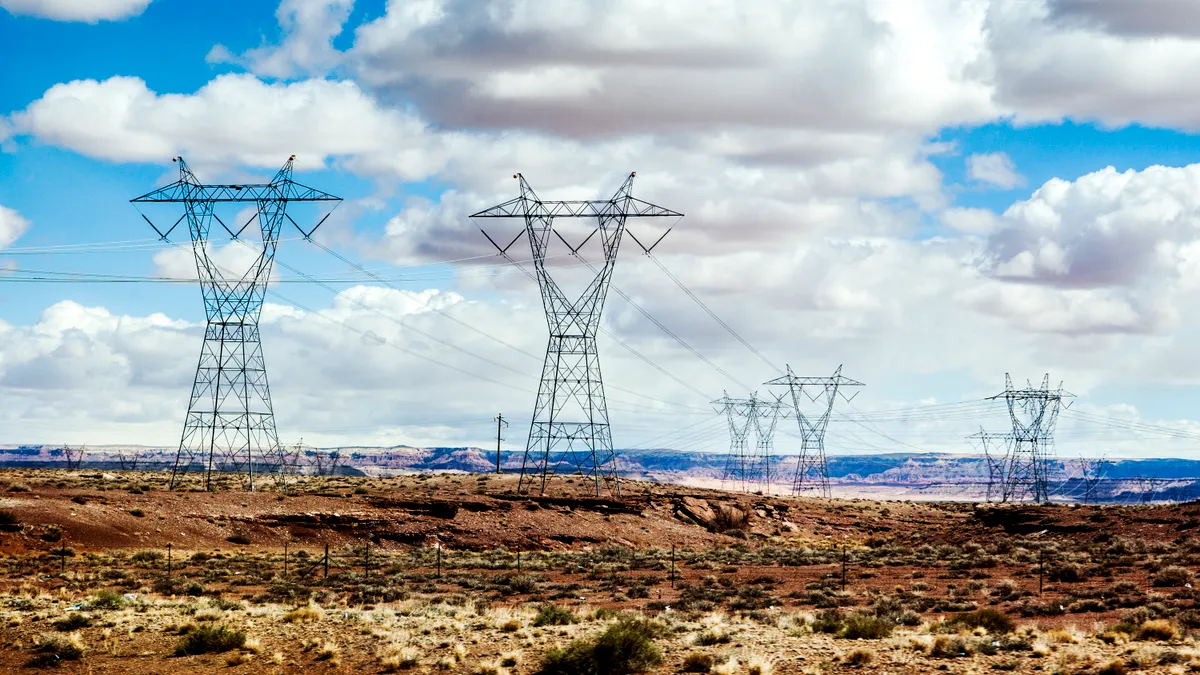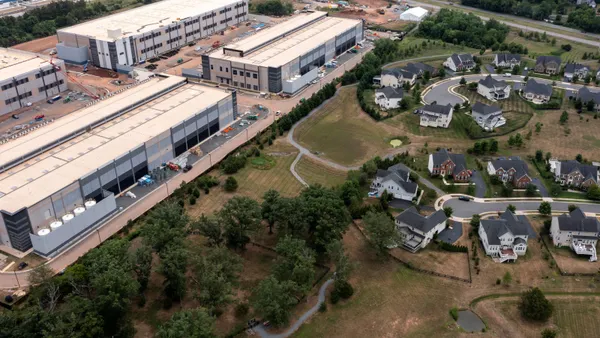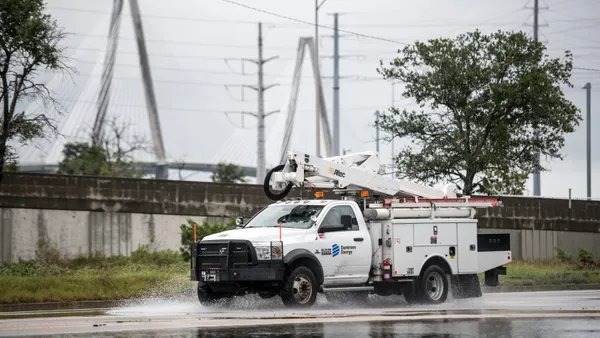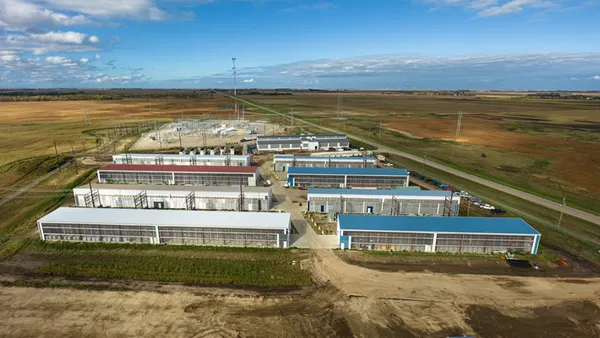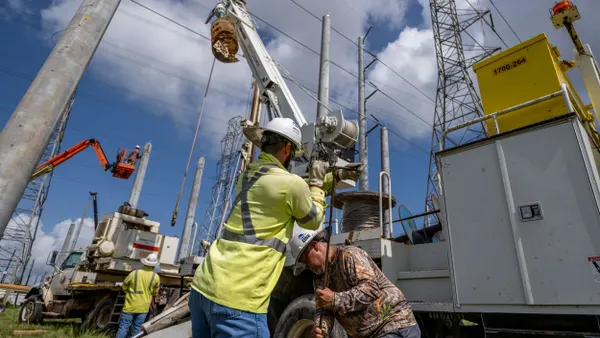Dive Brief:
- The California Independent System Operator asked federal regulators Friday to reject a proposal by a Starwood Energy Group Global affiliate to recover more than double a cost cap for the 500-kV Ten West Link transmission project.
- DCR Transmission asked the Federal Energy Regulatory Commission late last month to approve a transmission tariff based on a $553.3 million estimated project cost compared to a $259 million binding cost cap, CAISO said.
- “Allowing DCR [Transmission] to exceed the agreed-upon cap in a manner not permitted by the Approved Project Sponsor Agreement would undermine the enforceability of cost containment mechanisms across all transmission planning regions in the U.S.,” CAISO said.
Dive Insight:
Supporters of competition in the transmission sector contend that bids with cost caps provide protection to ratepayers that aren’t available when utilities build their own power lines. The dispute over the Ten West Link comes as FERC is considering opening a pathway for more transmission lines to be built without a competitive solicitation as part of potential reforms to regional transmission planning.
Ten West Link, which is under construction, is set to run about 125 miles between the Delaney substation near Tonopah, Arizona, and the Colorado River substation in Blythe, California. DCR Transmission expects it will begin operating March 8, 2024.
The project grew out of CAISO’s transmission planning process and a solicitation held in 2014.
The cost cap in DCR Transmission’s project sponsor agreement doesn’t cover interconnection costs and there are exemptions for cost increases due to route changes, regulatory compliance obligations, delays from “force majeure” events, and certain FERC-accepted costs, according to the transmission company’s request for a transmission owner tariff and revenue requirement. The cost cap was increased in 2022, partly to reflect permitting delays.
DCR Transmission’s proposed transmission rate includes an $86.9 million increase to cover inflation since 2020, $60.3 million for interconnection expenses and $122.9 million for various costs, such as the effects of the COVID-19 pandemic, according to the company.
However, CAISO asked FERC to reject DCR Transmission’s proposal, saying it would violate the cost cap, which was a key factor in selecting the project. FERC should hold hearings on the proposal to sort through the dispute, according to the grid operator.
Approving the proposal would undermine confidence in CAISO’s transmission planning process and in competitive solicitations held by the ISO and other regional transmission planners, the grid operator said.
DCR Transmission failed to show the “vast majority” of the expenses it wants to recover above the cost cap are allowed under its project sponsor agreement, according to CAISO.
“Foreseeable challenges and delays in obtaining regulatory approvals may result in economic hardships but do not satisfy the force majeure provisions” in the project sponsor agreement, CAISO said.
Also, CAISO said it has not agreed to allow DCR Transmission to recover costs in excess of its cost cap under a “catch-all” provision.
Under that provision, DCR Transmission contends that even if a particular CAISO- or FERC-approved cost does not qualify for an exception to the agreement’s cost containment provisions, it should be recoverable because all of the project’s costs were prudent.
LS Power Grid, a competitive transmission company, said FERC should reject the “catch-all” exception to the cost cap.
DCR Transmission’s argument for a catch-all exception appears inconsistent with CAISO’s tariff and the project sponsor agreement, according to LS Power.
It should also be rejected for policy reasons, the transmission developer said, noting that opponents of competitive transmission processes have argued that cost containment provisions have no value because FERC has ultimate authority over rates.
“Commission precedent has long held that such binding contract rate commitments cannot be undone simply because they turned out to be a bad deal for one of the parties to the contract,” LS Power said. “The concept that any ‘prudently incurred’ cost is recoverable notwithstanding contractual commitments to the contrary is inconsistent with longstanding commission precedent.”
FERC must make it clear that binding cost containment commitments made in competitive processes are binding, the company said.
Other parties raising objections to DCR Transmission’s proposal include Pacific Gas & Electric, the California Department of Water Resources State Water Project, the Northern California Power Agency and a group of six southern California cities.



